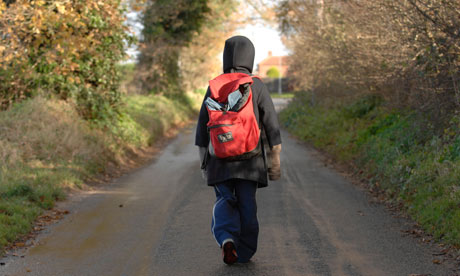Be a runaway or a throwaway means a expression of the society's rupture. Because the society is formed by the family as its nucleus.
With respect to runaways, this is a word for denominate the rupture of this nucleus, but for the abandonment of the most little of his members, like an own election; at the same time when the member becomes a homeless, he/she has to face more problems being alone in the streets as the result of trying to avoid their family problems, that problems could be: mainly arguments, also divorcing, the arrival of a new stepparent, and feel himself unloved.
Meanwhile Throwaways mean the same rupture in the society´s nucleus but a cause of the reject of the own family, as the result of basically social issues that are presented in the family, this could be: financial worries, physical, psychological or sexual abuses.
That is a global issue and most of people should be worried for them, because the family is the treasure of the society, and everybody should try to preserve the family and the values, the sons are the future, the heritage that going to continue with the family, educate them is the main homework, because our sons are the reflect of home, and they are going to represent that generation in the future as a new generation, the education is our legacy.








